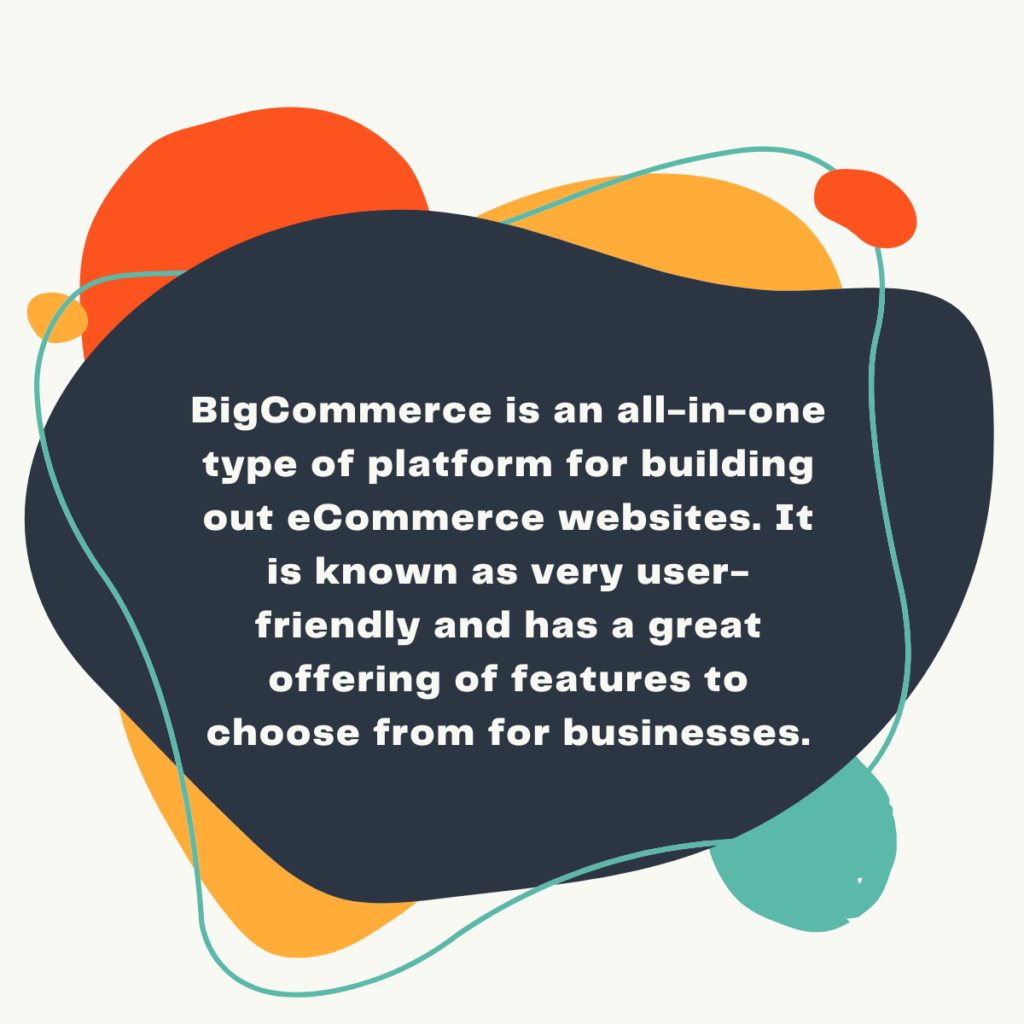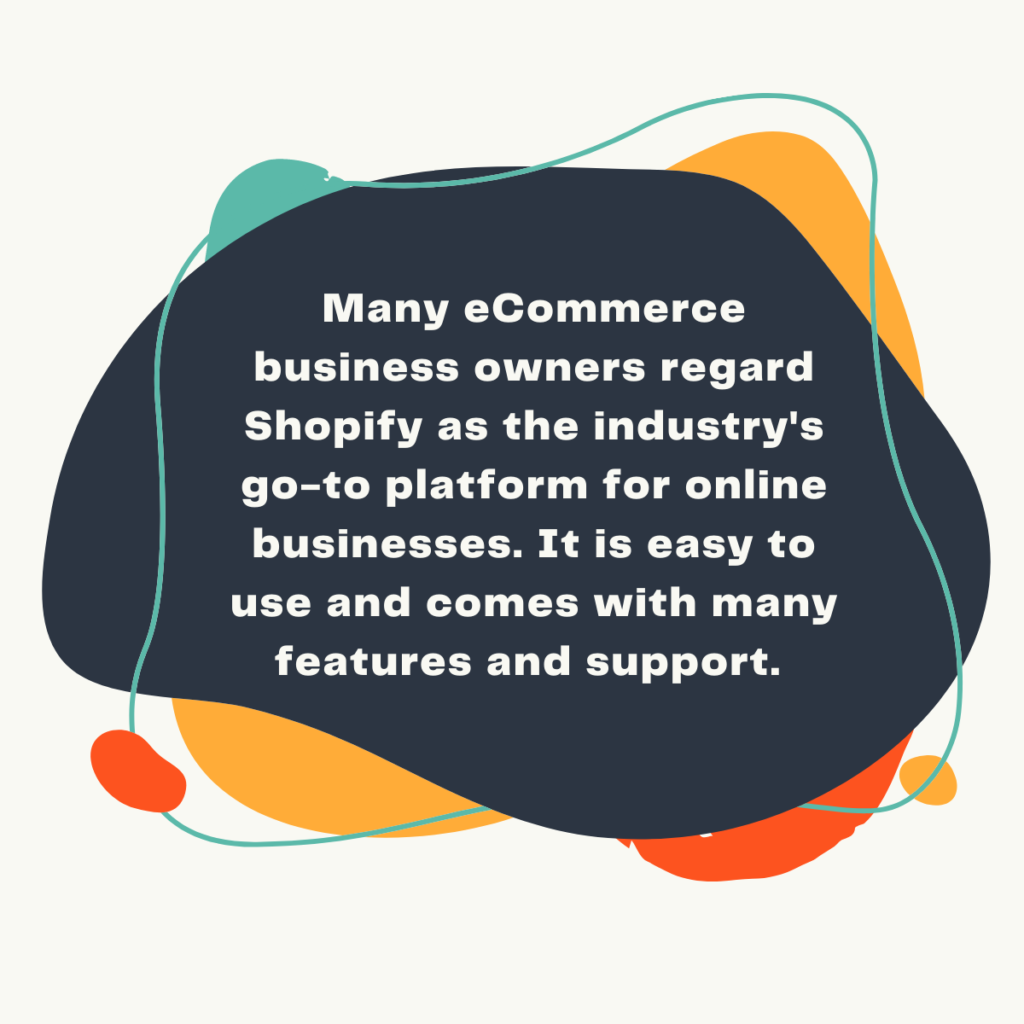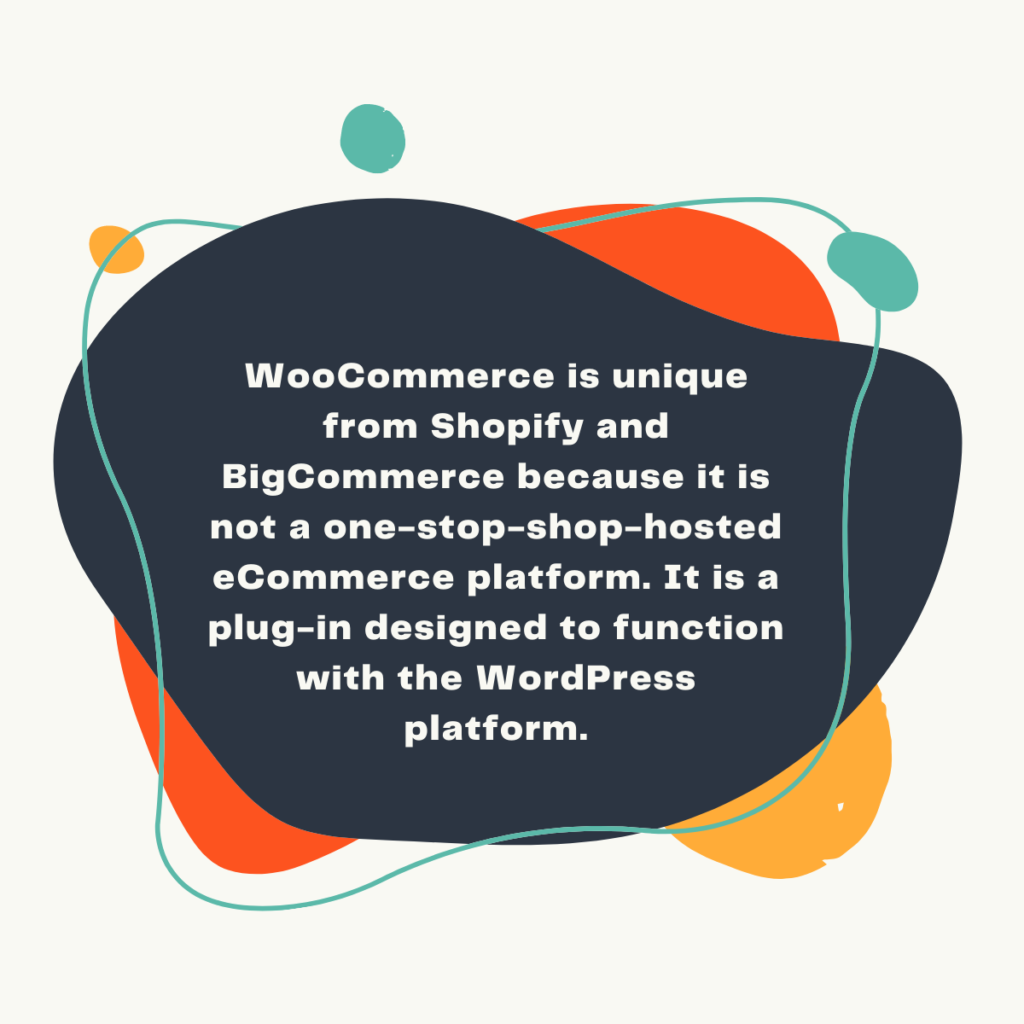BigCommerce vs. Shopify vs. WooCommerce: A Comparison Guide
If you’re considering opening up an eCommerce shop but aren’t sure where to begin, check out this ultimate comparison guide on the largest website platforms.
When you set out to build a business in the eCommerce industry, there are countless options out there. Many people find the website building process overwhelming—it is vital, after all. An eCommerce shop typically has no brick-and-mortar location to depend on and decorate to build a brand, so it relies on the digital space to shape the company. The three most prominent platforms for eCommerce site-building are BigCommerce vs. Shopify vs. WooCommerce. Check out the ultimate comparison guide.
BigCommerce
BigCommerce is an all-in-one type of platform for building out eCommerce websites. It is widely accepted as an industry standard and is a top competitor for Shopify and WooCommerce. It is known as very user-friendly and has a great offering of features to choose from for businesses. Check out more pertinent information about the BigCommerce platform.

Key Features
Here are the most notable key features that set BigCommerce apart from its competitors.
- Many free and paid professional themes to choose from
- PCI compliant hosting
- HTTPS security
- Unlimited bandwidth
- Ability to accept online payments
- Low processing rates through Braintree
- Abandoned cart saver, product ratings, reviews, blog, and international selling options
- 24/7 customer support
Many other features are potential selling points for different brands; these are the most highly rated ones.
Base Cost and Incidentals
Similar to the other large platforms for eCommerce website building, BigCommerce charges users through a monthly subscription. Here are the key points to know.
- BigCommerce offers the first month free as a trial.
- The standard plan (less than $50,000 in sales per year) is just under $30 per month.
- The plus plan (less than $150,000 in sales per year) is just under $80 per month.
- The pro plan (less than $400,000 in sales per year) is just under $250 per month.
- The enterprise plan (custom sales per year) is quoted on a case-by-case basis.
Selling Points
Each platform comes with its unique selling points. Here are the most mentioned ones about BigCommerce.
- No transaction fees
- Promotional deal with Braintree
- Many options for processing
- Unlimited bandwidth
- Multichannel selling options
- One-page checkout experience
Drawbacks
Just as every platform has its advantages, it also comes with a few drawbacks. Here are the ones for BigCommerce.
- Each plan level comes with processing limits
- No app for mobile
- Limited integrations options compared to other platforms
- Limited features on the lower-tiered plans
Shopify
Many eCommerce business owners regard Shopify as the industry’s go-to platform for online businesses. It is easy to use and comes with many features and support. With more than 800,000 business websites, it is known as an all-inclusive option. Learn more about the Shopify platform.

Key Features
Here are the most notable features of the Shopify platform to note.
- There are tons of free and paid themes businesses can choose from to customize their stores
- Drag and drop builder or HTML and CSS
- Complete blogging platforms and CMS
- Provided web hosting
- Included SSL certificate, PCI compliance, and instant upgrades
- More than 100 third-party payment options and the ability to customize or discount shipping
- Unlimited number of products with easy management
- Free Shopify mobile app
- 24/7 customer support
Base Cost and Incidentals
Shopify offers a monthly subscription through three plans with two additional choices. Each option includes the online store, blog, unlimited products, round-the-clock support, and the Shopify app. Here are the fundamental plan cost breakdowns.
- Basic Shopify plan (two staff accounts and third-party payment transaction fees of 2 percent) is $29 per month
- Shopify plan (five staff accounts and third-party payment transaction fees of 1 percent) is $79 per month
- Advanced Shopify plan (15 staff accounts and third-party payment transaction fees of 0.5 percent) is $299 per month
- Shopify Lite (Facebook sales only, no website included) is $9 per month
- Shopify Plus (quoted on a case-by-case basis for Enterprise clients)
Selling Points
Shopify is currently the go-to platform for eCommerce shops. It is the default for most companies and is an excellent choice for businesses of all ages due to its adaptability and user-friendliness. Here are some of the top-selling points.
- Easy to use platform and customization options
- Tons of integration choices
- Built-in Shopify payment options
- Fastest online shop setup available
- Easy to manage inventory and orders
- All plans include recovery tools for shopping cart abandonment
Drawbacks
While Shopify is highly regarded as the leader in eCommerce website platforms, it has pitfalls that business owners should remain aware of. Here are the main drawbacks of the Shopify platform.
- Only the highest level plan comes with advanced features
- There are transaction fees for third-party payment processors
- No email hosting
- Theme customization is tricky on Shopify
WooCommerce
WooCommerce is unique from Shopify and BigCommerce because it is not a one-stop-shop-hosted eCommerce platform. It is a plug-in designed to function with the WordPress platform. While WooCommerce offers similar capabilities as Shopify and BigCommerce, it’s also much more customizable because there are no ties to the website software. Learn more about WooCommerce below.

Key Features
The platform comes with features as unique as itself. Here are the most notable features for businesses using WooCommerce.
- It is an open-source plug-in for WordPress
- There are no product number limitations
- No customization limits
- Built-in blogging and CMS through WordPress
- Free WooCommerce mobile app for business management
- More than 400 extensions to tailor a website to individual needs
Base Cost and Incidentals
With the individual nature of WooCommerce, the pricing operates a bit differently than other eCommerce all-in-one type platforms. Here is a breakdown of WooCommerce pricing.
WooCommerce operates as a free plug-in through WordPress. While a free plug-in download may sound enticing, it does not mean your eCommerce business website is free. The cost of a WooCommerce store includes:
- A WordPress plan
- Custom domain name
- Hosting
- Theme
- Developer assistance
- Payment processing
- Some payment extension downloads
Selling Points
Some of the top-selling points of WooCommerce are listed below.
- Free download and potentially the lowest costing eCommerce platform overall
- Countless customization options through an open-source plug-in
- Customizable to individual coding capabilities
- Compatible with WordPress sites
Drawbacks
As with anything, there are always drawbacks to consider. With WooCommerce, the main potential disadvantages are the following:
- Requires a WordPress website and is not compatible with any other type of site
- Domain, hosting, and security are not included
- There are no abandoned cart recovery tools
- Fewer included features than other platforms
There are so many options when it comes to building a website for your eCommerce store. Understanding the perks and drawbacks of BigCommerce vs. Shopify vs. WooCommerce is the best start to your eCommerce journey. Take our comparison guide with you as you shop around for the best site builder for your needs.
